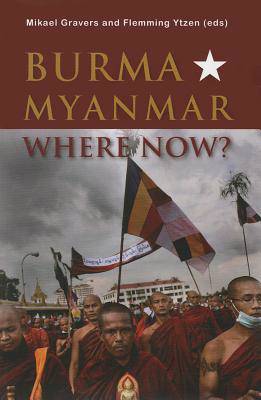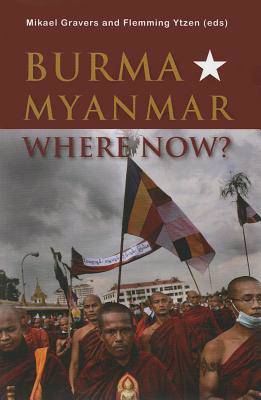
- Afhalen na 1 uur in een winkel met voorraad
- Gratis thuislevering in België vanaf € 30
- Ruim aanbod met 7 miljoen producten
- Afhalen na 1 uur in een winkel met voorraad
- Gratis thuislevering in België vanaf € 30
- Ruim aanbod met 7 miljoen producten
Zoeken
Omschrijving
Recent changes in Burma/Myanmar have been called the "Burmese democratic spring." While the international media have mainly focused on the economic opportunities offered by these changes and on the doings and sayings of Aung San Suu Kyi, the reality is far more complex. The country is desperately poor, divided by ethnic and religious rivalries and continues to suffer from some of the world's most intractable military conflicts while powerful elite factions oppose reform. Where, then, is the country heading? What are the key challenges it will face? Who are likely to be the key players in the unfolding events? With contributions on topics like the political situation, international relations, ethnic and religious rivalries, and the economy, long-time observers of the situation offer insights and analysis that address these issues.
Specificaties
Betrokkenen
- Uitgeverij:
Inhoud
- Aantal bladzijden:
- 106
- Taal:
- Engels
- Reeks:
Eigenschappen
- Productcode (EAN):
- 9788776941130
- Verschijningsdatum:
- 31/08/2014
- Uitvoering:
- Paperback
- Formaat:
- Trade paperback (VS)
- Afmetingen:
- 119 mm x 178 mm
- Gewicht:
- 680 g

Alleen bij Standaard Boekhandel
+ 51 punten op je klantenkaart van Standaard Boekhandel
Beoordelingen
We publiceren alleen reviews die voldoen aan de voorwaarden voor reviews. Bekijk onze voorwaarden voor reviews.










